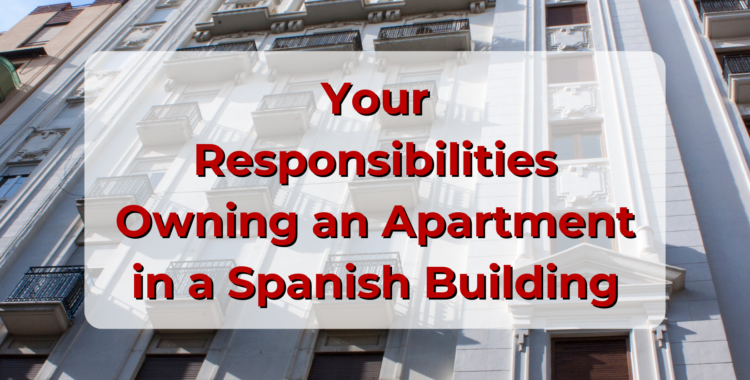Own Property in an ‘Edificio’?
What responsibilities do I have as a property owner in a Spanish building?
Being part of ‘la comunidad’ entails various obligations in shared buildings in Spain, including attending meetings and fulfilling financial dues. La comunidad functions akin to a homeowner’s association among neighbours within a building. You may wonder about the specific duties associated with la comunidad and whether joining is mandatory.
Typically, each comunidad establishes its own rules, while Article 9 of Spain’s Horizontal Property Law outlines common responsibilities for members to uphold. Before delving into these obligations, let’s address some common queries about establishing a comunidad, especially if your building lacks one.
Is forming la comunidad obligatory?
According to the Horizontal Property Law, it’s mandatory in buildings with more than five owners, although smaller buildings may also have them.
How do you initiate la comunidad?
Firstly, check if a comunidad already exists, possibly documented in the Land Registry or existing community statutes. Then, convene a meeting where all owners, including the developer if applicable, must attend to approve the community’s structure and composition. Subsequently, maintain detailed meeting minutes for future reference and formalize them in a dedicated book registered with the land registry. Lastly, apply for a tax number (NIF) to facilitate financial transactions for the community.

What are the responsibilities of comunidad members?
- Maintain and respect common areas, such as courtyards, gardens, and lifts, ensuring their upkeep and cleanliness, either through shared cleaning arrangements or employing a cleaner.
- Fulfill financial obligations by staying current with payments, including ordinary fees (e.g., utilities, cleaning) and extraordinary fees (derramas) for unforeseen expenses, crucial for the comunidad’s financial stability.
- Assume the presidency if elected, with exceptions for justified causes like illness, and oversee building access for necessary repairs and maintenance.
- Attend owners’ meetings, vote on community decisions, or delegate voting if unable to attend, as failure to participate may result in penalties. Overall, being part of la comunidad involves active participation and adherence to shared responsibilities for the benefit of all owners.











